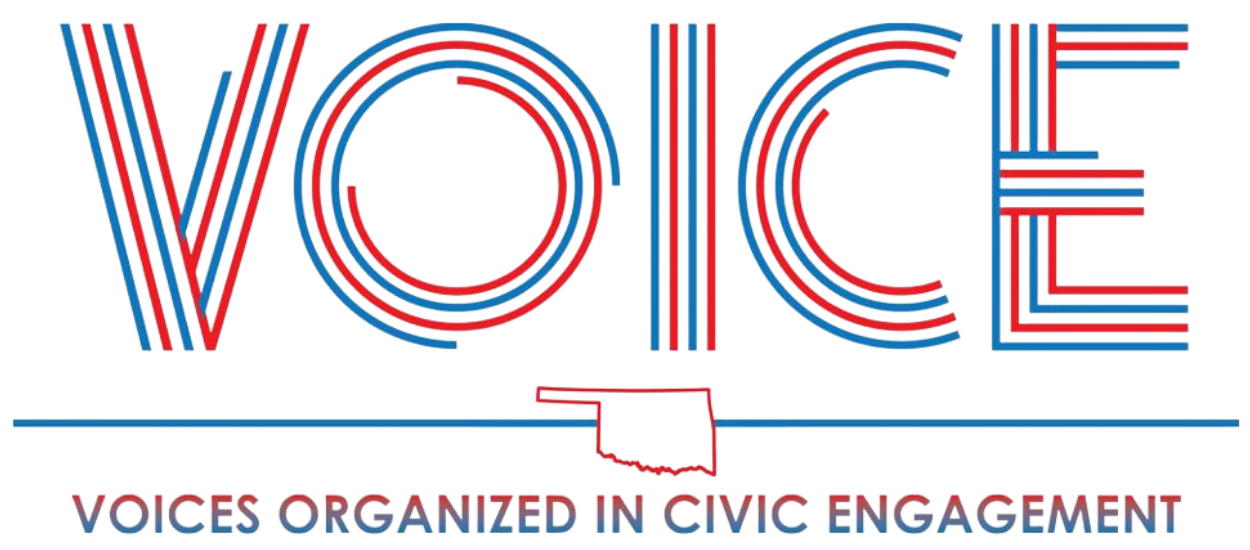Alarms Sound on SCOTUS Case Challenging CFPB Funding
Predatory Lenders and Moneyed Interests Target the Consumer Financial Protection Bureau in Supreme Court Case
Local organization VOICE - Voices Organized in Civic Engagement - is joining consumer advocates around the country in sounding the alarm about the case, CFPB v CFSA, which could leave Oklahoma consumers more vulnerable to financial predation
On October 3, the Supreme Court will hear oral arguments in Consumer Financial Protection Bureau v. Community Financial Services Association of America, a case whose outcome could severely weaken the CFPB and its capacity to protect everyday consumers from unfair and abusive financial practices, including scams, junk fees, and predatory lending.
Experts are warning that the uncertainty caused by a ruling against the CFPB could destabilize markets by calling into question over a decade of rulemaking and enforcement. If the CFPB’s independent funding structure is found to be illegal, this could also implicate the legality of the many other programs and agencies funded outside the appropriations process, including the Federal Reserve, the Office of the Comptroller of the Currency, the Federal Deposit Insurance Corporation, Medicare, and Social Security. Everyday consumers rely on the stability of these agencies and programs.
“This case could directly impact Oklahomans,” said VOICE Education Fund treasurer Heather Sparks. “Oklahoma consumers directly benefit from the CFPB’s work, and use its resources to make their voices heard when they come up against big banks and predatory businesses.”
The CFPB has taken action on over 21,000 complaints made by state residents, including over 2,000 from servicemembers and almost 1,000 from older Oklahomans. Most have to do with incorrect credit reporting and credit repair services. The next largest group is complaints around debt collection (attempts to collect on debt not owed, disputes due to identity fraud, etc.).
Although the case originally began with the payday loan industry’s opposition to fair lending rules, the case evolved into an existential threat to the CFPB when the Fifth Circuit Court of Appeals declared the CFPB’s funding structure unconstitutional. The agency, like many other regulators, is funded outside the appropriations process. Multiple other federal courts have affirmed the CFPB’s funding to be constitutional. Should the Supreme Court rule against the CFPB, the agency’s funding would be subject to the full appropriations process and the whims of Congressional politics.
“We’ve seen how politicized and chaotic that system can be,” added Fr. Tim Luschen, VOICE Education Fund president, and priest at St. Charles Borromeo Catholic Church. “Those agencies depending on appropriations have been subject to imminent government shutdown just this past weekend. Our financial system and citizens need the CFPB - as well as the Federal Reserve, FDIC, Medicaid, and Social Security - to continue doing their important work, regardless of the in-fighting that occurs regularly in Congress.”
Originally created in 2011 as a response to the costs borne by millions of Americans in the wake of the subprime mortgage crisis, the CFPB has since obtained over $17.5 billion in relief for about 200 million consumers. For example, in recent years the CFPB has:
Taken several enforcement actions against banks and financial service companies for unfair overdraft and non-sufficient funds (NSF) fees. As of Q4 2022, overdraft/NSF revenue is down nearly 50% compared to pre-pandemic levels.
Cracked down on abusive debt collection and predatory lending practices. This includes stopping big lenders from bombarding consumers with junk lawsuits and suing lenders who were making illegal 200% interest loans to servicemembers.
Consistently protected student borrowers from fraudulent practices. The bureau has penalized multiple student loan servicers for misrepresenting repayment options to struggling borrowers and recently issued $95 million in redress to 87K consumers harmed by Premier Student Loan Center.
The Supreme Court is expected to issue a ruling on the case in Summer 2024. The case is the latest in a long series of efforts by moneyed interests and bad actors to defund, dismantle, and weaken the agency.
